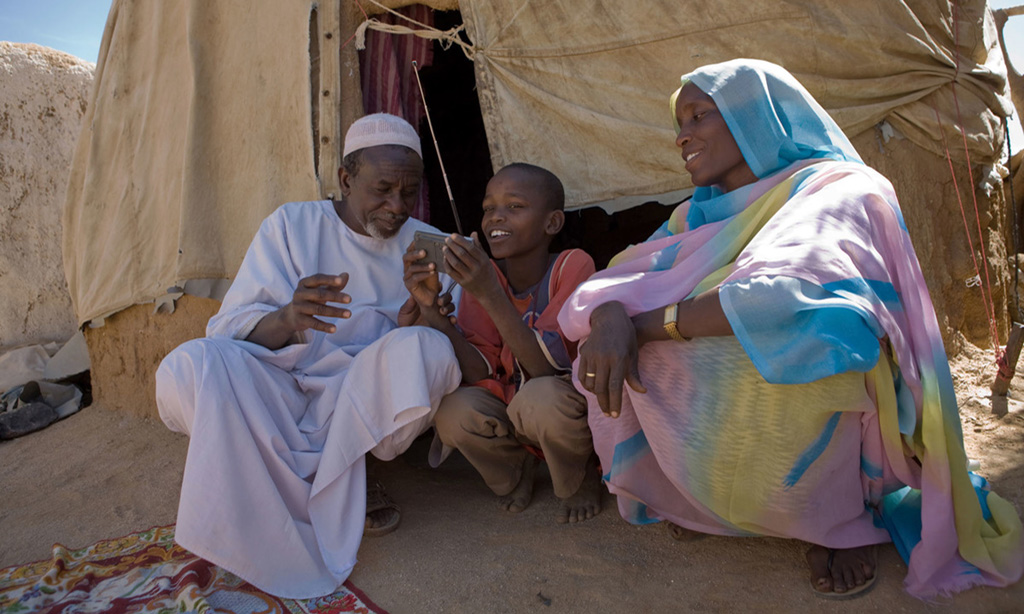World Radio Day: ‘Dabanga is a lifeline in Sudan’

Dabanga listeners in Sudan (File photo: Jan-Joseph Stok / Free Press Unlimited)
Radio remains a vital source of information worldwide, but in war torn Sudan, it is a lifeline. As the world marks World Radio Day 2025*, the role of independent broadcasters has never been more critical, especially in Sudan, as the war between the between the Sudanese Armed Forces and the paramilitary Rapid Support Forces (RSF) now approaches its 22nd month.
For millions of Sudanese caught in the country’s ongoing conflict, Radio Dabanga is more than just a news outlet, it is a crucial source of verified, independent information.
Since its launch in 2008, the station has provided vital updates on displacement, human rights abuses, and humanitarian crises, cutting through censorship to amplify voices on the ground.
Despite expanding into satellite television, social media, and a bilingual website, radio remains at the core of its mission to deliver the truth.
In comments to mark Human Rights Day 2024, Kamal El Sadig, Editor-in-Chief of Radio Dabanga, highlighted the vital role of the station’s shortwave broadcasts, which are a lifeline for those in remote Sudan, refugees, and displaced people.
He said, “Threats, attacks, and abuses against journalists have escalated, making it extremely challenging for Dabanga’s correspondents, and most other media, to obtain and verify information that can sometimes mean the difference between life and death to our listeners in the war zone.
The war in Sudan has devastated the country’s media, destroying 90 per cent of its infrastructure and displacing around a thousand journalists, according to the Sudanese Journalists Syndicate (SJS).
Many media outlets were looted, forcing journalists to flee or seek other work. At the SJS conference in Cairo in October last year, Eman Fadul, Secretary of Freedoms at the SJS, highlighted that 80 per cent of Sudan’s states were cut off from internet access, making it difficult to report on the conflict.
In the past 18 months, 445 journalists in Sudan have been killed, arrested, or tortured, with 20 facing charges for alleged links to the RSF.
Women journalists have been particularly vulnerable, with 11 assaulted and 54 disappeared or arrested, while many have faced gender-based violence or exploitation.
Displaced journalists also struggle with professional and legal challenges, including forced exile.
On World Radio Day, press freedom advocates are calling for greater support for independent journalism in Sudan.
Radio Dabanga, operating from exile, continues to broadcast against the odds. Its supporters say it plays an essential role in ensuring that Sudanese communities, especially those cut off by war, have access to reliable information.
To support Radio Dabanga, visit our donation link: Keep Dabanga On Air!
#WorldRadioDay #SupportDabanga #JournalismMatters
*Proclaimed in 2011 by UNESCO Member States and adopted by the United Nations General Assembly in 2012 as International Day of the United Nations, February 13 became World Radio Day (WRD).











 and then
and then